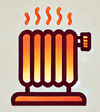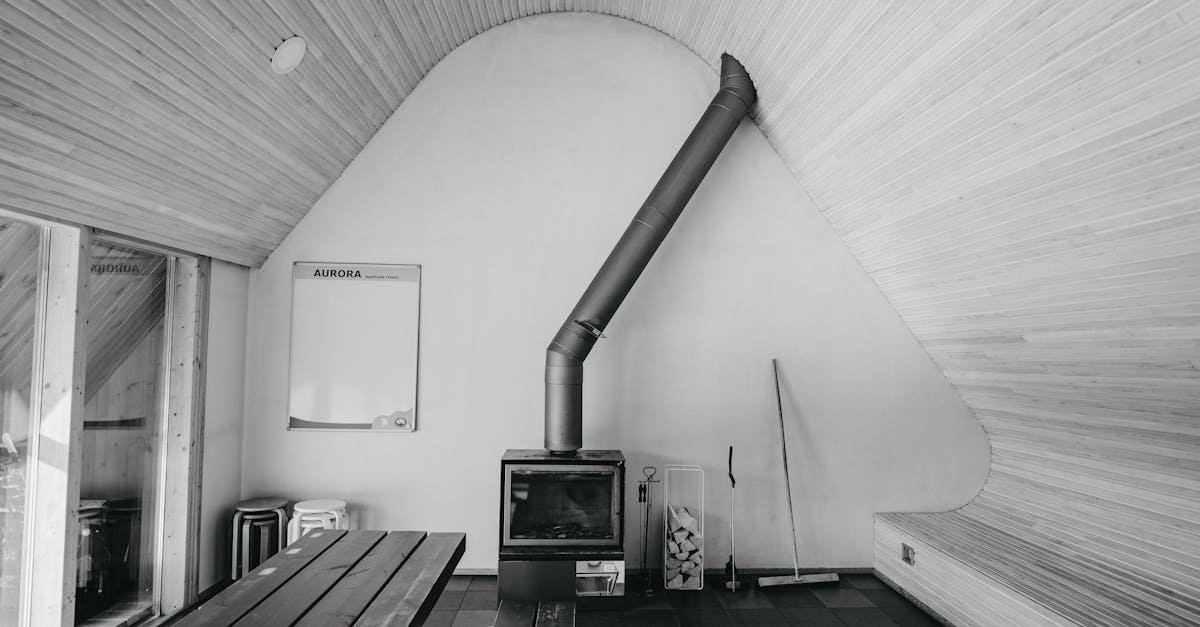Convection heaters are highly efficient, often converting around 90% of electrical energy into heat. This means they can warm your space quickly and effectively, making them a popular choice for heating homes and offices. Their efficiency largely stems from the way they circulate warm air, creating a comfortable environment without wasting energy.
When considering a convection heater, it’s essential to look at factors like size, insulation, and the heater’s specific features. By understanding these elements, you can maximize your heater’s efficiency and ensure you get the most value from your investment.
Understanding Convection Heater Efficiency
Convection heaters are known for their high efficiency in warming spaces. They convert about 90% of electrical energy into heat. This section explains how convection heating works and what factors affect its efficiency.
What Is Convection Heating?
Convection heating uses the natural movement of air to distribute warmth. When the heater warms the air, the hot air rises, creating a vacuum that pulls in cooler air. This process circulates warm air throughout the room. You can find convection heating in various forms, including wall-mounted units and portable heaters. These heaters often use fans to enhance air circulation, boosting overall efficiency.
Factors Influencing Efficiency
Several factors influence the efficiency of convection heaters:
- Size of the Heater: Choose a heater that matches your room size. An oversized unit wastes energy, while a small one struggles to maintain warmth.
- Insulation Quality: Proper insulation minimizes heat loss. Poorly insulated spaces require more energy to maintain comfort.
- Location of the Heater: Placing the heater in a central position helps distribute heat evenly. Consider keeping it away from furniture or curtains to avoid blocking airflow.
- Thermostat Settings: Accurate thermostat settings maintain desired temperatures without excess energy use. Adjust settings according to your comfort level.
- Maintenance Needs: Regular cleaning and maintenance ensure optimal performance. Keep vents clear and check for dust buildup that can impair efficiency.
Understanding these factors helps you select a convection heater that maximizes efficiency and provides better comfort in your space.
Benefits of High Convection Heater Efficiency
High convection heater efficiency offers several advantages that enhance your heating experience. You can enjoy significant energy savings and improved comfort when using an efficient heater.
Energy Savings
Efficient convection heaters convert around 90% of energy into heat. This high conversion rate leads to lower energy bills. You save money each month, allowing for a better budget. For example, upgrading from an older model to a high-efficiency convection heater can reduce your electricity consumption by up to 30%. You minimize waste and help the environment by choosing an efficient option.
Comfort and Heating Consistency
Efficient convection heaters provide consistent warmth throughout your space. They create a steady flow of warm air, eliminating cold spots. You experience a more comfortable environment as the heater circulates air effectively. With an accurate thermostat, you maintain the desired temperature without frequent adjustments. This steadiness enhances your overall comfort in various rooms, making cold winters much more bearable.
High convection heater efficiency not only saves money but also boosts your comfort, making it a wise choice for effective home heating.
Measuring Convection Heater Efficiency
Measuring convection heater efficiency involves understanding several key concepts. Efficiency indicates how well a heater converts energy into heat. It’s crucial for choosing the right heater for your needs.
BTU Ratings Explained
BTU stands for British Thermal Unit. It measures the amount of heat a heater produces. A convection heater’s BTU rating helps you gauge its heating capacity. Higher BTU ratings mean more heat output. For example, a heater rated at 10,000 BTUs can warm a space of about 300 square feet effectively. Matching the BTU rating to your room size ensures efficient heating. Using a heater with an appropriate BTU rating prevents excessive energy usage while keeping your space comfortable.
Efficiency Tests and Standards
Efficiency tests measure how well a convection heater performs. The most common standard is the Energy Star rating. This rating indicates that the heater meets specific energy efficiency criteria. Energy Star certified products use less energy than conventional models, saving you money. Other tests, like the Annual Fuel Utilization Efficiency (AFUE), measure the heater’s efficiency over a year. A higher AFUE percentage means more efficient heating.
Understanding these metrics helps you evaluate different convection heaters. When you choose a model with a high BTU rating and a solid efficiency standard, you maximize both comfort and savings.
Comparing Different Types of Convection Heaters
Convection heaters come in various types, each with unique features and performance levels. Understanding these differences helps you make an informed choice.
Electric vs. Gas Convection Heaters
Electric convection heaters operate using electrical energy and are known for their high efficiency. They convert about 90% of energy into heat, making them ideal for quick heating. They’re easier to install and maintain. You plug them in, and they’re ready to go.
Gas convection heaters use natural gas or propane. They provide strong warmth and tend to heat larger spaces more quickly than electric models. But, they require proper ventilation to prevent carbon monoxide build-up. Their efficiency can vary based on the model and how well it’s maintained.
Portable vs. Permanent Models
Portable convection heaters offer flexibility. You can move them from room to room as needed. They’re great for heating specific spaces, like a home office or a living room. Many models come with adjustable settings, allowing you to customize warmth.
Permanent convection heaters are installed in fixed locations. They connect directly to your electrical or gas supply, providing consistent heat throughout larger areas. These units often have higher initial costs but can offer long-term savings in energy efficiency.
Choosing between these types hinges on your heating needs, space availability, and budget.
Conclusion
Investing in a high-efficiency convection heater can significantly enhance your comfort while reducing energy costs. By understanding how these heaters work and considering factors like room size and insulation, you can make informed choices that maximize warmth and efficiency.
Regular maintenance and accurate thermostat settings are key to maintaining optimal performance. Whether you opt for electric or gas models, selecting the right convection heater tailored to your needs will lead to a more comfortable living space. Embrace the benefits of efficient heating and enjoy a cozy environment without the worry of high energy bills.








